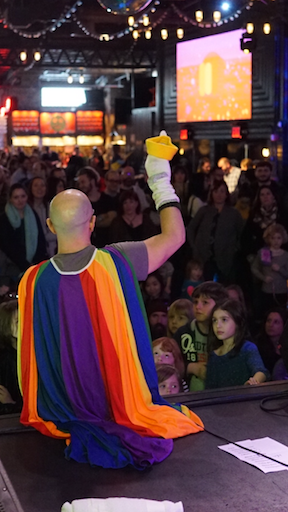I can really only remember two graduation speeches in my life: my own at my high school graduation, and Ted Turner's at my college graduation.
Believe me, I'm not bragging when I say that I think my own was the better of the two.
I'm not suggesting that mine was good, mind you -- it was well-structured, generally grammatically correct, and included a semi-funny line or two -- but I sincerely doubt anyone in attendance remembers the substance of my speech. (They might remember that I delivered it two separate times about an hour apart, but that's an entirely different story.)
But Turner's -- that one was awful. Even twenty years later, his brief, rambling, speech is remembered as being the opposite of inspiring.
At some point a few years back, I became slightly interested in graduation speeches turned into books. I think the inspiration was probably David Foster Wallace's "This Is Water" speech delivered at Kenyon College in 2005, which was subsequently turned into a book, quite possibly the first example of a single graduation speech turned into a book, or at least a 21st century speech. (More on the Wallace book below.) So I picked up one or two copies of books inspired by graduation speeches each year, and now I'm here with an entire post worth of them. And since many of the children who were the first "readers" of the site -- or at least the beneficiaries -- are reaching graduation age, at least on the high school level, I thought it'd be a good time to compile some thoughts in that regard.
Now, I'm not obsessed with graduation speeches, so I encourage those of you who are to spend several hours (or days) among the speeches collected by NPR, or even longer reviewing the speeches at Graduation Wisdom, which I have come to think of as the Zooglobble for graduation speeches. (Maybe it's the other way around.)
But if I had one simple observation from reading the books I'll discuss below is that graduation speeches can be basically grouped into 2 types: those that suggest what to do, and those that suggest how to be (or think). There's nothing that particularly makes one approach better than the other, but I think it's fair to say that during the more than a decade of running this site, when it comes to kids music, I have a preference for being over doing, for songs that suggest a way of moving through the world and interacting with others rather than lessons to be learned (especially in concrete tasks). Again, it's personal preference, but I think that preference applies to these books as well. I think the advice on how to be is much more likely to be remembered down the line than advice on what to do.
For each book I've provided some details, a brief thesis statement, its applicability to high school students, and some comments. I would note that sometimes what might make for a good speech delivered in person might not make for as engrossing an experience when read in a book several years later and disconnected from the personal experience. As many fans of music can attest, the live experience can be substantially different from the recorded experience, and that, I'm guessing, goes for graduation speeches as well. (I've also provided an Amazon affiliate link in case any of the comments inspire you to purchase a copy for your own family or neighborhood graduate-to-be.)
Without further ado then, let's jump in.
(Last updated May 2018)






















